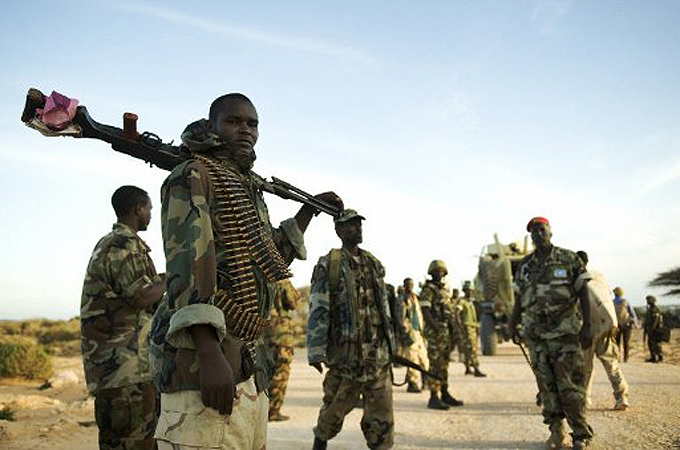| AL Jazeera English Africa | |||
| London conference to focus international response to poverty, famine, piracy and country's continuing civil war. Last Modified: 23 Feb 2012 05:13 | |||
| | |||
Forty countries will be represented at Thursday's conference in London, and attendees include Hillary Clinton, the US secretary of state, and Ban Ki-moon, the UN secretary-general. Other participants at the conference include the European Union, the African Union and the Arab League, as well as the head of the breakaway Somaliland region. Gatherings similar to Thursday's meeting in the past 20 years have resulted in many foreign commitments of aid, but in little progress on the ground, sceptics say. Britain, the country organising the conference, says the aim of the event is to galvanise policymakers' attention and to better co-ordinate a sometimes disjointed international response to Somalia's many challenges. The conference will not be examining the clan-based politics which affect several aspects of Somali life and play a role in everything from business and piracy to the distribution of humanitarian aid. Nevertheless, some analysts say that Somalis are expecting real progress to be made during the talks in London. "The expectations that Somalis have are huge," Jabril Ibrahim Abdulle, a Mogadishu-based civic activist with the Somalia Center for Research and Dialogue thinktank told Reuters. "You have so many external actors driving different agendas that it would be a success to have a unified stance. Above all we need implementation of what's agreed, as disappointed hopes will only bring more radicalisation and hostility." Abdiweli Mohamed Ali, the prime minister of Somalia's Transitional Federal Government (TFG), insisted on the eve of the conference that his country was "moving into an era of peace, stability and normalcy". He admitted however that his hopes for a "huge Marshall Plan for Somalia" - echoing the US aid scheme to rebuild post-war Europe - were dim, saying: "I really have no clue of what they will say tomorrow." History of violence Somalia collapsed into civil war between rival warlords, clans and factions after Siad Barre, the country's former military dictator, was overthrown in 1991. Up to a million people have been killed since then, according to the International Committee of the Red Cross (ICRC). Moses Wetangula, foreign minister of neighbouring Kenya, told Reuters he wanted to see "a renewed and reinvigorated international commitment to Somalia". "We hope it's not going to be the usual talking shop where we make flowery speeches and get clapped and go away without caring whether it will be followed up or not," he said. Kenya deployed troops across the border with Somalia last year, aiming to target al-Shabab fighters, who were attacking Kenyan targets. Somalia's TFG got a boost on the eve of the London conference when the UN Security Council voted to increase an African Union peacekeeping force by nearly half, seeking to press home gains made in a military offensive against al-Shabab. The resolution increased the AMISOM force to 17,731 troops, from 12,000. The UK Foreign Office said Thursday's meeting could build on "this good news, setting out a comprehensive international approach to Somalia covering politics, development, security, as well as our work to combat terrorism and piracy." The military offensive against the rebels is ongoing, and on Wednesday, Ethiopian and Somali forces captured the al-Shabab stronghold of Baidoa in the south, the country's prime minister said. The TFG's mandate ends in August, by which time it is to have enacted a new basic constitution and held an election. Peter Pham, an expert on Somalia with the Atlantic Council, said that similar conferences in the past had pretended that "Somalia is still a state when it has long ceased to be one". "The only result this has produced is to incentivise the rent-seeking behaviour and corruption of so-called officials incapable of restoring a modicum of security and governance ... What is needed is a 'bottom-up' approach." | |||
| Source: Agencies | |||
| | |||
Don't join any of these group ISIS, Al Qaida, Al Shabab and Boko haram these are human traffickers
Wednesday, February 22, 2012
World leaders to discuss Somali crises
Subscribe to:
Post Comments (Atom)





No comments:
Post a Comment